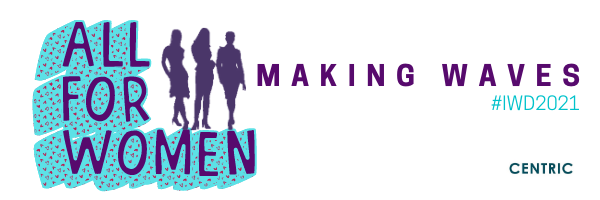Is GDP fit for purpose? Creating policy post-COVID-19
The CWO and CPF are hosting an online panel to discuss these issues further on Tuesday 5th of May. Details are available here.
By Fleur Butler, Chairman of Conservative Women’s Organisation and her son Edward Selwyn Sharpe, Durham History undergraduate.
The failings of Gross Domestic Product (GDP) are not unknown. In fact, there have been multiple attempts to make up for its failings, from David Cameron’s ‘Happiness Index’ to the Office of National Statistics’ (ONS) ‘Beyond GDP’ initiative introducing economic well-being indicators. Yet, these often muddy the water as policy continues to fall victim to GDP’s biggest failings: environmental impacts are an afterthought, while according to the ONS (2015) 63.2% of work is unaccounted for.
This did not matter during World War Two, when GDP was created. In fact, in 1944 economists made a conscious decision to exclude unpaid work, nor to count the environmental costs, as the country’s future hung on production alone. But generations later we face our own war and our response needs to adapt to our current situation. The very same reasons why we dismissed unpaid work and the climate in 1944 make them more important than ever. Our main campaign might be over once a vaccine is developed, but we must open our eyes and change our outlook if we are the win the peace.
This is an opportunity to rebuild an equal society which values all and to create a stable foundation for people and businesses to prosper. While certainly daunting, our present circumstances have shown quite how important unpaid work is and highlights the exciting possibilities which a re-evaluation of GDP offers to more flexible work patterns than what can be produced between 9-5.
The problem
For the Conservative audience reading this there is another prospect to consider. By ignoring the debate on how to value unpaid work, vacating the debate on happiness, and treating the environment as an inconvenience, we open the door to the left to fill the space. As we have seen with identity politics, a failure for the right to explore ideas leaves the solutions coming from economists of the left. For instance, if the majority of all state cuts during austerity were born by women as Labour claim, than their solution of more state dependency for women through benefits to make up for women’s structural position in society, is a rather dismal vision. Or Corbyn’s “4-day week” which not only fails to escape the traditional GDP framework and its associated problems, but promotes inequality rather than breaking it down. 40% of women work part time compared to 13% of men. Their work load would stay the same.
For this is not only a problem about undervaluing our economy but is also about equality. Of the unpaid work, which is excluded from GDP calculations, King’s College London highlighted statistics that 75% is completed by women. The “glaring manifestations of inequality” which the University found cannot be solved through the same GDP framework which covered it up in the first place. What a waste of potential talent that women’s ways of working cant be valued fully due to rigid notions of production.
As many of us turn to working at our kitchen tables, the lines have blurred between private and public spheres. The irony of writing political ideas from the kitchen table has certainly not gone amiss to my sons. Yet the previous exclusion of housework and volunteering, of caring for our communities, from GDP not only perpetuated stereotypes of women’s unpaid and unvalued work, but created divisions between the free market and equality, capitalists and feminists. And forced men to work like male stereotypes all the time too.
While I am no environmental expert, the problems with using GDP are very similar. By continuing to use extra indicators when considering the environment, rather than creating a single top line figure to rival GDP, the old fashioned economic solutions have created a contest between the environment and the economy. A healthy environment and a healthy economy are not paradoxical, nor is an equal society, so why should our economic indicators continue to make it seem this way? An essay for the future is needed on this topic alone.
Why women hold the answer to rebuilding
It is time to learn and improve by looking around at what people choose to do with their time. How they value what is important in their activities. Corona virus has thrown up the value of voluntary work, and the great importance of our badly paid and unpaid carers, the work load of our nurses and doctors. A country which can care well for its society – whether that be our brilliant NHS workers or volunteers delivering groceries to an elderly neighbour – is becoming increasingly important as a sign of a country’s success.
We need to progress beyond the old-fashioned notion of ‘nine ‘til five’ production of goods and services as the way to economic empowerment and equality. People are not just units of production as current GDP encourages. A new set of indicators will set the frame work for new policies to be tried. Perhaps encouraging more to work flexibly, like women do already, would allow our economy to prosper.
The IFS reported that at least part of the reasons for the gender pay gap is because women take badly paid, part time work when they have kids. But there is no reason why flexible work has to be badly paid. Added flexibility will not only help bring equality in opportunity but opens-up space for contributions to economic growth. Using all the talents our economy has, rather than wasting people in badly paid part time work when their skills could achieve more, will bring about greater production for all. More doctors, working non rigid work patterns, more bankers working part time, more nurses working hours that suit a healthy private life, and more train drivers working flexibly. Currently there are less than 10% female train drivers due to restrictive work practices that suit men. We need policies that encourage more than just production of goods and services. With a top-line indicator which accounts for the hidden 63% of the economy, but also for environmental impacts, a breath of new life will be blown into policy. And a new set of economic measurements will set the framework.
Something for the future
As technology allows home working and caring for families to blurr, both men and women can gain. By valuing all our time not only will it inevitably improve efficiency, but also improve the investment in our future generations through time spent with our families and communities.
These opportunities in turn help tackle the gender pay gap, place more emphasis on social relationships which we realise create a happier and healthier community, and will increase productivity within the economy by using our labour force more effectively.
More than anything, it gives responsibility back to citizens so that they can really chose how best to spend their time both caring and working– a feature of life which we will all appreciate fully once lockdown lifts.
Our Latest Posts

Women Making Waves 10/03/2021
International Women’s Day 2021 We decided one day is not enough, we have dedicated the whole week to celebrating International […]

Keir Starmer has good traits for the courtroom, not a country in crisis: by Sonia Khan 11/02/2021
A few weeks ago I participated in a webinar where the theme of politicians as animals came up. Sir Keir […]

Follow Us On
Social Media